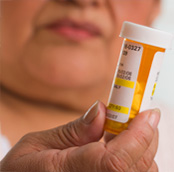Food and Drug Law
Protecting Yourself after Exposure to Tainted Food
 When you or someone you love has suffered from food poisoning or contracted any illness or injury because of exposure to food-borne pathogens, there are a number of avenues you can follow to pursue damages for your losses. Though a lawsuit will customarily be based on product liability (that the produce was either dangerous or defective, or that it was improperly designed or produced), there are a number of theories under which you can seek compensation:
When you or someone you love has suffered from food poisoning or contracted any illness or injury because of exposure to food-borne pathogens, there are a number of avenues you can follow to pursue damages for your losses. Though a lawsuit will customarily be based on product liability (that the produce was either dangerous or defective, or that it was improperly designed or produced), there are a number of theories under which you can seek compensation:
- Strict liability—In states that have enacted strict liability laws for dangerous and defective products, you don’t need to prove fault. You only need to establish that the food that you consumed was contaminated, that it was made by the defendant, and that the contamination made you ill.
- Breach of warranty—Almost every state has laws that set minimum standards, or warranties, on products. If the food you ate caused you to become ill, you may be able to argue that there was a violation of the basic warranty.
- Negligence—Most food-based injury claims are based on a theory of negligence, i.e., that the producer of the food did not use reasonable care in preparing it for sale.
One of the benefits of filing a product liability claim is that you can seek damages from any party within the chain of distribution. Accordingly, in a food-based injury claim, you can pursue compensation from the producer of the food, as well as any wholesaler, retailer or distributor.
Drug Claims
Drug claims are typically filed as product liability claims, too. Though many claims involve allegations that the drugs were negligently or poorly manufactured, drug injury claims more often fall under one of two categories:
- Injuries sustained because of side effects—These claims allege that manufacturers failed to take reasonable measures to determine the existence or likelihood of any side effects that could pose health risks.
- Injuries suffered because drugs were improperly marketed—Pharmaceutical companies must include reasonable instructions and warnings on packaging and containers. Failure to do so is frequently the cause of injury, and of personal injury lawsuits.
Connect with Top-rated Attorneys Near You
Sponsored Advertisement
Latest Article
What Is a Trust Fund? A Comprehensive Guide
A trust fund is a powerful tool that has stood the test of time. It is an essential instrument in modern wealth manageme... Read More
Arraignment: Meaning, Common Charges, & Process
Arraignment is a pivotal moment within the criminal justice system, marking the formal initiation of criminal proceeding... Read More
What Is Probable Cause? Definition and Examples
The Constitution protects you from being searched without a valid reason. But what exactly constitutes a valid reason? A... Read More
GETLEGAL®ATTORNEY DIRECTORY
Find Leading Attorneys in Your Area
NEED PROFESSIONAL HELP?
Talk to an Attorney
How It Works
- Briefly tell us about your case
- Provide your contact information
- Choose attorneys to contact you





